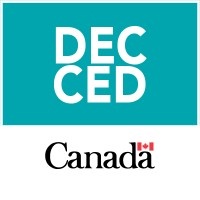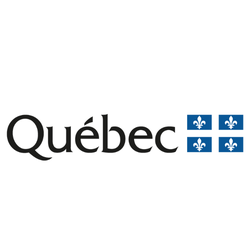
REGI — Regional Innovation Ecosystems — CED (QC) — Not-for-profit
At a glance
- Up to 90% of project cost
- Closing date : May 21, 2024
- Manufacturing
- Information and cultural industries
- Educational services
- Other services (except public administration)
- Quebec
- Non-profit
- Public or Parapublic institution
- All revenue ranges
- All organization sizes
- Indigenous Peoples
- Rural or Northern Residents
- Startups
- Higher Education
- Research
- Economic, Social and Community Development
- Employment and Training
- Business Associations
- Indigenous peoples
- Rural / Remote communities
- Business owners / entrepreneurs
- Nonprofits / charities
- Academia / students
- All structures
- Municipal
- Regional
Overview
Your organization could get a financial contribution to assist businesses at all stages of development in scaling up and becoming more globally competitive. Investments will focus on enhancing business support networks for under-represented groups includi
Activities funded
The grant aims to create an innovation-friendly environment that boosts entrepreneurial growth and productivity in various Canadian regions. Eligible projects emphasize collaboration, technological advancement, and regional economic integration.
- Encouraging closer connections among different ecosystem players.
- Fostering the creation, growth, and maintenance of regional clusters.
- Attracting foreign investment into the region.
- Supporting the transfer of technology and knowledge to businesses.
- Facilitating acquisition of cutting-edge equipment by research centers, educational institutions, and incubators or accelerators.
- Offering innovation support services.
- Recruiting highly skilled resources to enhance businesses' innovation capacity.
- Promoting partnerships, alliances, and the formation of industrial clusters.
- Creating or developing associations, alliances, or partnerships for networking.
- Providing services aimed at attracting foreign direct investment to Quebec.
Eligibility
Eligibility for this grant is determined by specific criteria related to the type of organization and project objectives.
- The applicant must be a non-profit organization that provides services or generates benefits for businesses.
- Eligible applicants also include business incubators, accelerators, municipalities, regional county municipalities, groups, or associations (NPOs, businesses, post-secondary institutions, and consortia), and Indigenous organizations.
- The project must aim to foster closer ties among players in the ecosystem, create or maintain regional clusters, or attract foreign investment.
- The project should align with sectors such as manufacturing, food processing, information and communications technologies, or life sciences, though other sectors may also be eligible.
- The project must have clearly defined expected results, demonstrate organizational viability, show technical and financial management capacity, include financial or professional contributions from partners, and have a manageable degree of risk.
Who is eligible?
Eligible applicants include non-profit organizations (NPOs) that deliver services or generate benefits for businesses, business incubators and accelerators, municipalities and regional county municipalities (RCMs), groups or associations such as NPOs, businesses, post-secondary institutions, and consortia, as well as Indigenous organizations. Eligibility extends to SMEs or NPOs located in economically vulnerable RCMs or in Montréal’s East End, which may qualify for flexible program conditions. However, entities like retail businesses, food services, transportation services, housing construction, daycare services, hair and beauty salons, and nightlife establishments are not eligible.Who is not eligible
This grant excludes certain companies and industries due to their main activity or sector. The restrictions aim to focus funding on fostering innovation-friendly entrepreneurial environments.
- Retail businesses, including clothing stores, grocery stores, and automobile sales and maintenance outlets.
- Food services, such as restaurants and cafés.
- Transportation services.
- Housing construction.
- Daycare services.
- Hair and beauty salons.
- Nightclubs, bars, and cabarets.
Eligible expenses
This grant supports initiatives that encourage innovation, collaboration, and entrepreneurship in various sectors. Eligible projects focus on fostering regional growth and attracting investment through advanced resources and partnerships.
- Transfer of technology and knowledge to businesses.
- Acquisition of cutting-edge equipment by recognized research centres and educational institutions, and incubators or accelerators.
- Innovation support services.
- Recruiting of highly skilled resources to increase businesses’ innovation capacity.
- Establishment of partnerships, alliances, and industrial clusters.
- Creation or development of associations, alliances, or partnerships to promote ties and networking.
- Services aimed at attracting foreign direct investment to Quebec.
Eligible geographic areas
This grant is intended for non-profit organizations operating within Quebec, as indicated by the mention of regional clusters and foreign investment in Quebec. However, specific geographical areas within Quebec are not explicitly listed in the provided information.
- Non-profit organizations operating in Quebec.
Selection criteria
The evaluation and selection of projects under this grant consider several criteria to ensure suitability and potential effectiveness.
- The expected results of the project.
- The viability of the organization implementing the project.
- The technical and financial management capacity of the organization.
- The contribution of partners in terms of financial resources or professional services.
- The degree of risk associated with the project.
How to apply
Consultation of information
- Consult the Project Presentation Guide.
- Review the eligibility criteria and eligible sectors to ensure that your project is eligible.
Preparation of the request
- Draft a project proposal including the description, objectives, and expected results.
- Include an analysis of organizational viability and a plan for technical and financial management.
- Gather the necessary information on partners and financial or professional service contributions.
- Ensure that all conditions and requirements for financial assistance are met.
- Rely on eligible project elements and avoid ineligible costs.
Communication with the organization
- Communicate with the organization to obtain further information and clarifications.
- Confirm the project details and resolve any questions before submitting the application.
Additional information
Here are additional relevant details for this grant:
- Financial assistance is non-repayable and usually covers up to 90% of authorized costs (50% for capital projects).
- Projects in economically vulnerable areas or in Montréal's East End may be eligible for flexible program conditions.
Frequently Asked Questions about the REGI — Regional Innovation Ecosystems — CED (QC) — Not-for-profit Program
What is the REGI — Regional Innovation Ecosystems — CED (QC) — Not-for-profit?
How much funding can be received?
Who is eligible for the REGI — Regional Innovation Ecosystems — CED (QC) — Not-for-profit program?
What expenses are eligible under REGI — Regional Innovation Ecosystems — CED (QC) — Not-for-profit?
Who can I contact for more information about the REGI — Regional Innovation Ecosystems — CED (QC) — Not-for-profit?
Where is the REGI — Regional Innovation Ecosystems — CED (QC) — Not-for-profit available?
Is the REGI — Regional Innovation Ecosystems — CED (QC) — Not-for-profit a grant, loan, or tax credit?
More programs like this

MAPAQ — Food Processing Program — Component 2
Ministry of Agriculture, Fisheries and Food (MAPAQ)
Support for biofood exports - individual projects
Ministry of Agriculture, Fisheries and Food (MAPAQ)
ÉcoPerformance — Recommissioning of building mechanical systems
Gouvernement du Québec
Individual Market Access Support (SIAM)
Aliments du Québec
Export and cultural visibility support program
Société de développement des entreprises culturelles (SODEC)
Electricity Management Systems
Hydro-Québec
Tax holiday for a new business created to commercialize intellectual property
Ministère de l'économie, de l'innovation et de l'énergie du Québec (MEIE)
GHG Challenge Program - Industry
Environnement Québec (MELCC)
Economic development program to help revitalize territories (DEPART)
Investissement Québec (IQ)